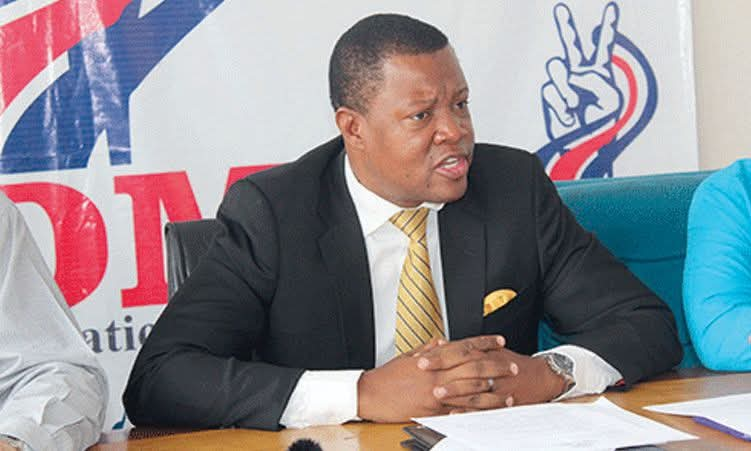Zebaldt Ngaruka
Popular Democratic Movement (PDM) leader McHenry Venaani, says the current curriculum was not adapted to the current needs of the economy and is confusing to both learners and parents.
Venaani said this in the National Assembly during contributions to the 2025/26 education budget recently.
“We welcome the allocation of N$24.8 billion to education, and that is a substantial commitment. But the pace at which the economy has been generating jobs remains glaringly inadequate,” he said.
The PDM leader said despite this spending on education, more than 60% of Grade 10 learners are functionally illiterate in mathematics and English.
“Year after year, we continue to see billions (of dollars) being poured into a system that is still producing underprepared pupils, overstretched teachers, and unfulfilled economic outcomes,” said Venaani. The PDM leader said the budget had failed to reference curriculum reform, teacher competency frameworks, or digital education infrastructure despite a system grappling with a 21st-century economy using 20th-century tools.
“We must also question the spatial equity of this spending. Urban schools in Windhoek and Swakopmund continue to outperform rural schools in Zambezi, Kunene and Kavango West,” said the parliamentarian.
Venaani added that a fair education system must be a targeted one, not just a well-funded one, and said the focus on quantity over quality has become a national liability.
“We now have thousands of learners sitting in classrooms, but too many leaving without critical skills or viable career pathways. The budget refers vaguely to unlocking economic opportunities through education infrastructure investments, but we must ask: Are we simply building more schools with the same broken learning systems, and to what end?”
On youth unemployment, the PDM leader said youth unemployment in Namibia remains among the highest in Sub-Saharan Africa.
The recent labour force survey put youth unemployment at 56%, including discouraged workers, with even higher rates in urban informal settlements.
Thus, Venaani said, the N$1.3 billion allocated to the youth, sport and national service is not sufficient, something he called screams of paralysis of political will. “It is concerning to note that there is little to no provision for youth entrepreneurship incubation, early-stage start-up capital, or a loan guarantee facility,” the parliamentarian said.
The PDM leader further said he believes Namibia’s young people would love to see a youth enterprise fund, fully seeded with the appropriate capital.
Also, he said, a targeted public-private sector internship incentive for absorbing youth into the labour force and a specific sector for youth development vouchers in ICT, agriculture, and manufacturing. “Our young people don’t want handouts, they want on-ramps into the economy. The truth is, a young entrepreneur needs more than a motivational slogan and branded T-shirt and cap,” he stated. The MP said young entrepreneurs need start-up capital, procurement access, and breathing room to fail, learn, and try their business venture again.
Venaani said the proposed budget is treating youth unemployment like a side hustle, neglecting to pay it the urgency it deserves.
“Our unemployment rate is over half of our productive age group. We are sitting on a demographic dividend that is quickly becoming a debt,” he echoed. Venaani further said the current allocations represent administrative continuity and not intrepid interventionary measures. “A government that allocates just N$1.3 billion for youth in the face of a crisis of this magnitude is telling the next generation that it doesn’t matter. We cannot afford this inaction. The youth of this country demands more. In fact, they deserve more,” said the PDM president.



